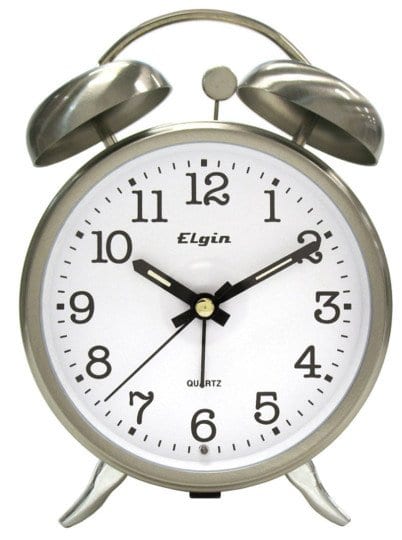How’d you sleep last night? If you’re trying to lose weight – or maintain a healthy weight – it’s a more important question than you might think…so important, in fact, that I ask my private clients about sleep every time we meet.
It’s even more important than “did you exercise?” or “did you eat healthy food?”. (Yep.)
You probably have a general sense of the importance of sleep to your health, but how often do you REALLY make it a priority? Get ready to move it up on the priority list…this week’s post might surprise you.
The science of sleep and weight loss
A Google search for “sleep and weight loss” brings up over 70 million results. Not surprising, given that we live in a chronically sleep deprived and dangerously overweight world.
The research confirms what most of us already know from experience: Being tired makes us HUNGRY and more likely to crave carbohydrates (sugar!!) and fat, in particular.
Think about the last time you were jet lagged. All you wanted was a pile of pancakes, eggs, bacon, and COOKIES!!! Lots and lots of cookies. (Oh…wait…that was me. 😉 Coffee was probably on the list of desperate cravings too – for the same reason that sugar was: A quick energy boost…that, by the way, can trigger even more sugar cravings.
Here’s why that happens:
- Hormones. When we’re sleep deprived, our hormones get all out of whack. Cortisol – a stress hormone – not only increases when we feel stressed out, but also when we’re tired (which is really just a form of stress, when you think about it). Increased blood cortisol levels make us – you guessed it – hungry! Then there are the “hunger hormones,” leptin and ghrelin. Leptin regulates body weight; our resistance to leptin increases when we’re tired (i.e., it can’t do its job). And ghrelin, a hormone that regulates appetite, increases when we’re sleep deprived, sending the message to our brain that we’re hungry. So we eat more.
- Metabolism. Not surprisingly, our sleep deprivation messes with our metabolism too. A Swedish study found that we burn up to 20 percent fewer calories the day after even one night of disrupted sleep. Add that to the fact that our hunger hormones are out of balance causing us to eat more food, and you’ve got a perfect storm of weight gain. (Interestingly, another recent study at the University of Colorado found that sleep-deprived subjects actually burned more calories during the day; but that seemed to be offset by the fact that they consumed so many extra calories, resulting in about two pounds of weight gain.)
I don’t know about you, but I find it really helpful to understand what’s actually happening in my body when it comes to this stuff. If that makes me a science geek, then so be it; but the bottom line is that I can control my relationship to food by making better choices when I understand how those choices actually affect me on a biological level.
Okay, so “making better choices” doesn’t always happen when we’re busy. Most studies show that 7 to 8 hours of sleep is the sweet spot for a majority of people; but if that’s just not happening for you, focus on QUALITY of sleep instead of quantity.
How to get more and/or better sleep
The key to restful sleep is what happens before you actually hit the pillow.
- Have a bedtime routine. Start winding down at least 30 minutes before bed; an hour is better. Do a little restorative yoga or a short meditation. Take a shower. Read a book. Just something low-key and consistent to signal to your body that it’s time for sleep.
- Ditch the screens. Blue light from iPhones, computers, TVs, and iPads inhibits our body’s ability to produce the melatonin that regulates our sleep cycle; so turn them off at least an hour before bed if you can. Keep this stuff out of the bedroom entirely if at all possible. (I recently bought an alarm clock so I could stop using my iPhone as a bedside alarm. It totally helped!) If you absolutely must read on your iPad in bed, try this nifty blue light filter to minimize exposure.
- Limit liquid. Stop drinking liquid at least an hour before bed to minimize nighttime trips to the bathroom. And caffeine? Not so much after midday/early afternoon if you really want to sleep well.
- Turn down the temperature. Most people sleep better in slightly cooler temperatures. Just make sure your bedroom is kept at a comfortable temperature for you.
What do you do to get the best possible sleep? Share your tips in the comments.
Sweet dreams,






